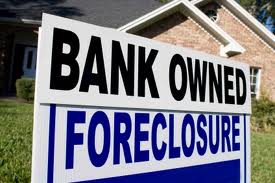 In the mid-1990s, the top mortgage insurers and service providers, along with Fannie Mae and Freddie Mac, the government entities that hold many of the country’s mortgages, created a database for tracking mortgage ownership called the Mortgage Electronic Registration System, or MERS. Since that time, more than 70 million mortgage loans, including millions of sub-prime loans, have been registered in the MERS system, rather than in local county clerks’ office.
In the mid-1990s, the top mortgage insurers and service providers, along with Fannie Mae and Freddie Mac, the government entities that hold many of the country’s mortgages, created a database for tracking mortgage ownership called the Mortgage Electronic Registration System, or MERS. Since that time, more than 70 million mortgage loans, including millions of sub-prime loans, have been registered in the MERS system, rather than in local county clerks’ office.
Last Friday, Eric Schneiderman, New York Attorney General and co-chair of President Obama’s new crisis unit, sued Bank of America, Wells Fargo and JP Morgan, accusing them of deceptive and illegal practices in their use of the database, including falsifying documents in foreclosure proceedings.
Schneiderman contends that the database is inaccurate and that the mortgage industry created MERS so that financial institutions could avoid county recording fees and publicly recorded mortgage transfers, saving the banks two billion dollars in recording fees. The lawsuit seeks to stop the banks from filing foreclosure actions through MERS.
Too bad it’s taken the Obama administration, and Eric Holder in particular, so long to go after the banksters responsible for the country’s financial collapse. (How one wishes that Robert Kennedy were heading the Justice Department.) Instead, Holder tried to cut an incredibly bad deal that would have the banks pay $20-25 billion in fines and mortgage relief in exchange for protection from further liability.
But thanks to Schneiderman, California’s Kamala Harris, Martha Coakley of Massachusetts and Beau Biden of Delaware––and a series of court rulings that have blocked foreclosures because banks presented fraudulent robo-signed documents––the administration has been forced to seek much stiffer fines and prison sentences.
But beyond stiff fines and long prison sentences for the worst of the banksters, the economy and the real estate market will not fully recover until the millions of homeowners with upside down mortgages get some relief. It appears that the Obama administration has finally come to the conclusion that creating a crisis unit and appointing a bulldog like Schneiderman is in their––and the country’s best interest.
It was illegal behavior by the banks, and not the homebuyer, that caused the greatest financial collapse since the Great Depression. Now, finally, we may get a reckoning. It’s the banksters’ worst nightmare come true.

